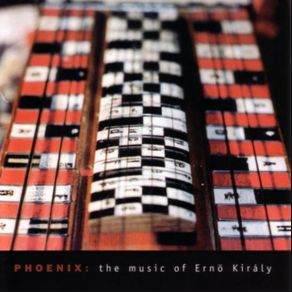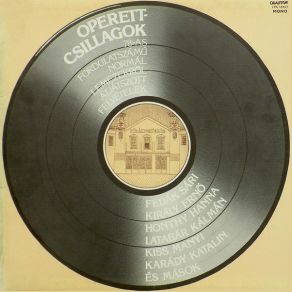Ernő Király / Erno Kiraly
Wikimp3 information about the music of Ernő Király / Erno Kiraly. On our website we have 2 albums of artist Ernő Király / Erno Kiraly. You can find useful information and download songs of this artist.
Biography
[Edit]Hardly known in his native country and largely ignored abroad, Ernö Kiraly remains one of Yugoslavia's best-kept secrets. A composer of chamber music, symphonies, and electronic music, he also built instruments and worked for decades as an ethnomusicologist. The slow rediscovery of his music, starting in the mid-'90s, owes much to the release of the collection Phoenix: The Music of Ernö Király by the British label ReR Megacorp in 1996. His interest in folk music, unusual instrumentation, and tape music draw parallels to Béla Bartók, Harry Partch, and Vladimir Ussachevsky, all composers who developed a highly personal vocabulary for the most part outside of the institution.
Kiraly was born in 1919, from Hungarian parents in Subotica, a town sitting on the Yugoslavia/Hungary border. He learned the guitar in his teens while working as an upholsterer and first performed in workers union orchestras before making his way to the Subotica Philharmonic. He later moved to Novi Sad, the capital of what was then the Autonomous Province of Vojvodina. Working at the state radio, he began to collect local folk music and study the musical customs of the elders. The radio station provided information on audio technology and soon a journalist friend introduced him to Edgard Varèse's "Poème Électronique." He spent most of the '60s composing tape music, occasionally scoring it for (or using as sound source) folk instruments. In the '70s, he turned to ensemble composition, using graphic scores and chance operations. This was made possible through the encounter of Dubravko Detoni and his ensemble Acezantez That decade also saw Kiraly involved in the creation of new instruments. Born out of a desire to go beyond the twelve-tone scale, his creations usually derived from folk instruments. The best-known is the zitherphone, a quarter-tone instrument made of five different zithers mounted on the same body.
Kiraly's music was occasionally performed in Novi Sad. He also scored film soundtracks and taught composition and folk music history in local colleges up to the late '80s. The annexation of Vojvodina to Serbia in 1988 and the Yugoslavian war that soon followed brought down the music institutions in the country, forcing Kiraly to work alone from his home and with no exposure. Colleagues and former students of his, namely Stevan Kovacs Tickmayer, made efforts to keep his music alive. In 1996, Kiraly performed at the RingRing New Music Festival in Belgrade, in a trio with Tickmayer and ex-Henry Cow drummer Chris Cutler. Later that year, Cutler's record label ReR Megacorp released Phoenix: The Music of Ernö Király, a collection of works from the '60s, '70s and '80s prepared by Tickmayer. ~ François Couture, Rovi
Title: Operettcsillagok
Artist: + /, Honthy Hanna, Sári Fedák / Sari Fedak, Ernő Király / Erno Kiraly
Genre: Pop

